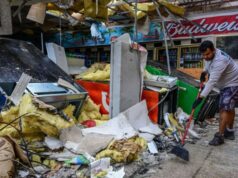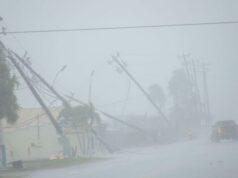Apple is investigating a factory in southwest China after a labor rights group said the tech giant’s supplier forced student workers to work “like robots” to assemble its popular Apple Watch.
The report raises fresh questions about the practices of suppliers Apple uses to build its gadgets in the country following the deaths of a number of workers in 2010 apparently linked to tough working conditions.
Many of the students were compelled to work in order to get their vocational degrees and had to do night shifts, according to an investigation by Hong Kong-based NGO Students and Scholars Against Corporate Misbehavior (SACOM).
SACOM interviewed 28 students at the plant in Chongqing municipality over the summer, and all of them said they had not voluntarily applied to work there, according to the report published last week.
They worked under the guise of “internships”, SACOM said, a practice rights groups say is widespread in China as manufacturers pair up with vocational schools to supply workers and fill labor shortages when they ramp up production for new models or the Christmas rush.
“Our graduation certificate will be withheld by the school if we refuse to come,” said one student majoring in e-commerce, according to SACOM.
The US titan has sold tens of millions of Apple Watches — which can cost up to $1,499 — since it was launched three years ago and chief executive Tim Cook said it was the most popular watch in the world.
Earlier labor abuse allegations focused on workers building iPhones and other gadgets for Taiwan-based Hon Hai Precision Industry Co., better known as Foxconn.
As the world’s largest contract electronics maker Foxconn assembles products in huge plants in China where it employs more than one million workers.
In 2010, at least 13 Foxconn employees in China died in apparent suicides, which activists blamed on tough working conditions, prompting calls for better treatment of staff.
Although Foxconn denied the accusations, it raised wages by nearly 70 percent at its China plants in 2010.
Urgent probe
Foxconn also admitted to intern violations in 2013, with overtime and night shift problems similar to those leveled at the Apple Watch supplier this year.
Manufacturing internships are permitted under Chinese labor law in some cases, but SACOM found the work has “literally nothing to do with learning” and violated some of the country’s labor law provisions permitting intern work in factories.
“We are like robots on the production lines,” one 18-year-old student told SACOM. “We repeat the same procedure for hundreds and thousands of times every day, like a robot.”
Others said they were put on the night shift working from 8 pm to 8 am with minimal breaks, according to SACOM.
The Chongqing factory is operated by Quanta Computer, a Taiwanese electronics manufacturer, and also produces for other brands. Quanta did not immediately respond to an AFP request for comment.
But Apple spokeswoman Wei Gu said: “We are urgently investigating the report that student interns added in September are working overtime and night shifts.”
Wei noted Quanta Chongqing was a new Apple supplier and had been audited three times between March and June without finding student interns.
Student workers told SACOM student labor was widespread at the factory.
Assembly lines that re-pieced together Apple Watches that had failed a quality check were almost entirely made up of student workers, one intern told SACOM.
“The factory would not be able to operate without student workers,” a student told SACOM.
The NGO demanded Apple investigate and bring the labor practices in line with the firm’s own policies and those of the local and central Chinese government.

















